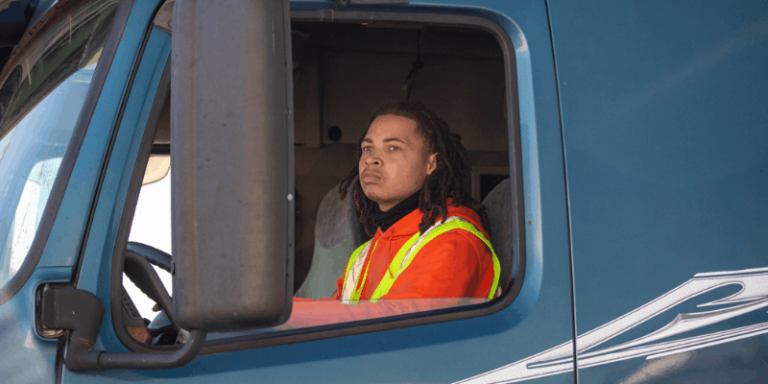
How Marijuana Use Affects Your CDL
According to the DOT’s Federal Motor Carrier Safety Administration (FMCSA), cannabis was the most common drug detected in positive drug tests by CDL holders in 2020 and 2021. Of 126,000 drug violations reported between January 2020 and March 2021, 56 percent were for cannabis. Of those, about 33 percent were pre-employment tests, meaning that many drivers were disqualified from getting hired because of their past cannabis use. This has placed a strain on an already-struggling supply chain industry.
If you are a truck driver or aspire to be one, you may wonder how marijuana use affects your ability to obtain or keep a Commercial Driver’s License (CDL). Marijuana is a controversial topic in the United States, as more and more states legalize it for medical or recreational purposes. However, federal laws and regulations still prohibit the use of marijuana by CDL holders, regardless of state laws. In this blog post, we will explore how marijuana laws affect you in your quest to become a commercial truck driver and retain your CDL.
Marijuana Use and CDL Testing
According to the US Department of Transportation (DOT), CDL holders are subject to drug and alcohol testing under the Federal Motor Carrier Safety Administration (FMCSA) regulations. These regulations require CDL holders to undergo pre-employment, random, post-accident, reasonable suspicion, return-to-duty, and follow-up testing. The DOT drug test screens for five substances: marijuana, cocaine, opiates, amphetamines, and phencyclidine (PCP). Please note that even a topical cannabis cream could show up as a positive test if you have had contact with your eyes or mouth, and THC patches can also create a positive result.
The DOT drug test is done by collecting a urine sample from the CDL holder at an approved collection site. The sample is then sent to a laboratory for analysis. The labs verify that the sample is your own by checking temperature, dilution, or any other parameters to look for adulteration. If the test result is negative, meaning no prohibited substances are detected, the CDL holder can continue to operate a commercial motor vehicle (CMV). If the test result is positive, meaning prohibited substances are detected, the CDL holder must be removed from safety-sensitive functions and referred to a Substance Abuse Professional (SAP) for evaluation and treatment.
The DOT drug test can detect marijuana use for up to 30 days after consumption, depending on the frequency and amount of use. However, some factors can affect how long marijuana stays in your system, such as your metabolism, body fat percentage, hydration level, and other medications you may be taking. Therefore, it is not possible to predict exactly how long marijuana will show up on a drug test.
The problem with current drug testing methods, such as urine or oral fluid tests, is that they cannot distinguish between recent and past cannabis use. Cannabis can stay in the body for days, weeks, or even months after consumption, depending on the frequency and amount of use. This means that a CDL holder who used cannabis legally in their off-duty time or in a state where it is legal could still test positive and face serious consequences, such as losing their job, going through a lengthy and costly rehabilitation process, or being barred from driving again.
Consequences of a Positive Drug Test
What if you test positive? A positive drug test means that you would be immediately removed from performing safety-sensitive functions, including driving a truck (Commercial Vehicle). Then, you will undergo an extensive return-to-duty (RTD) process that usually takes at least 12 months.
With the involvement of a Substance Abuse Professional (SAP), you’ll complete an assessment, and the SAP will recommend education or treatment. After you complete your education and treatment plan, your current employer will send you to an RTD test. As an owner-operator, your C/TPA will fulfill that role. The C/TPA is a private business that helps DOT-regulated companies comply with DOT drug/alcohol testing.
Once you pass the RTD test, you will receive paperwork to show that you are eligible to drive again. It is very important that you retain this paperwork for employers. Even after you have returned to driving, you will continue with a follow-up testing plan.
Marijuana Use and Medical Marijuana Cards (MMJ)
Some CDL holders may have a medical condition that qualifies them for a medical marijuana card in their state. A medical marijuana card is a document that allows a patient to legally purchase and use marijuana for medical purposes. However, having a medical marijuana card does not exempt a CDL holder from the DOT drug testing requirements. Marijuana is still classified as a Schedule I drug by the federal government, meaning it has no accepted medical use and a high potential for abuse.
Conclusion
In summary, marijuana use can have a serious impact on a commercial driver’s ability to obtain or keep a CDL, as federal laws and regulations prohibit its use by CDL holders. A positive drug test can lead to job loss and a lengthy rehabilitation process, even for those with a medical marijuana card. As “weed” is the most commonly detected drug in positive drug tests by CDL holders, it is essential for commercial drivers to understand the risks associated with its use.
Sources:
The Return-to-Duty Process (dot.gov)
How Long A Return To Duty Process Takes — My Safety Manager
Can CDL Drivers Have a Medical Marijuana Card? | DocMJ
DOT “Recreational Marijuana” Notice | US Department of Transportation
Cannabis confusion: Thousands of truckers taken off the job amid supply chain woes – POLITICO


